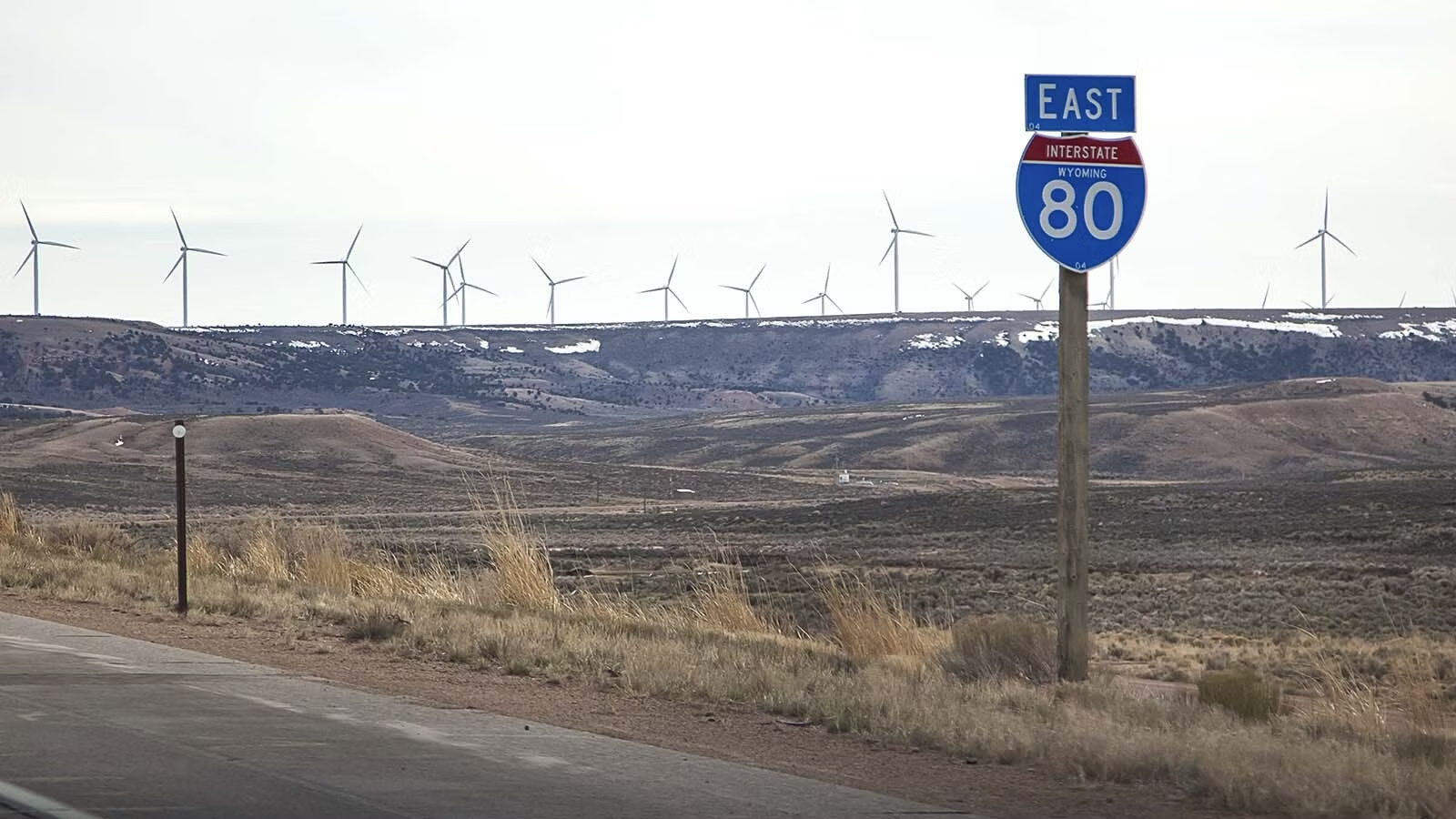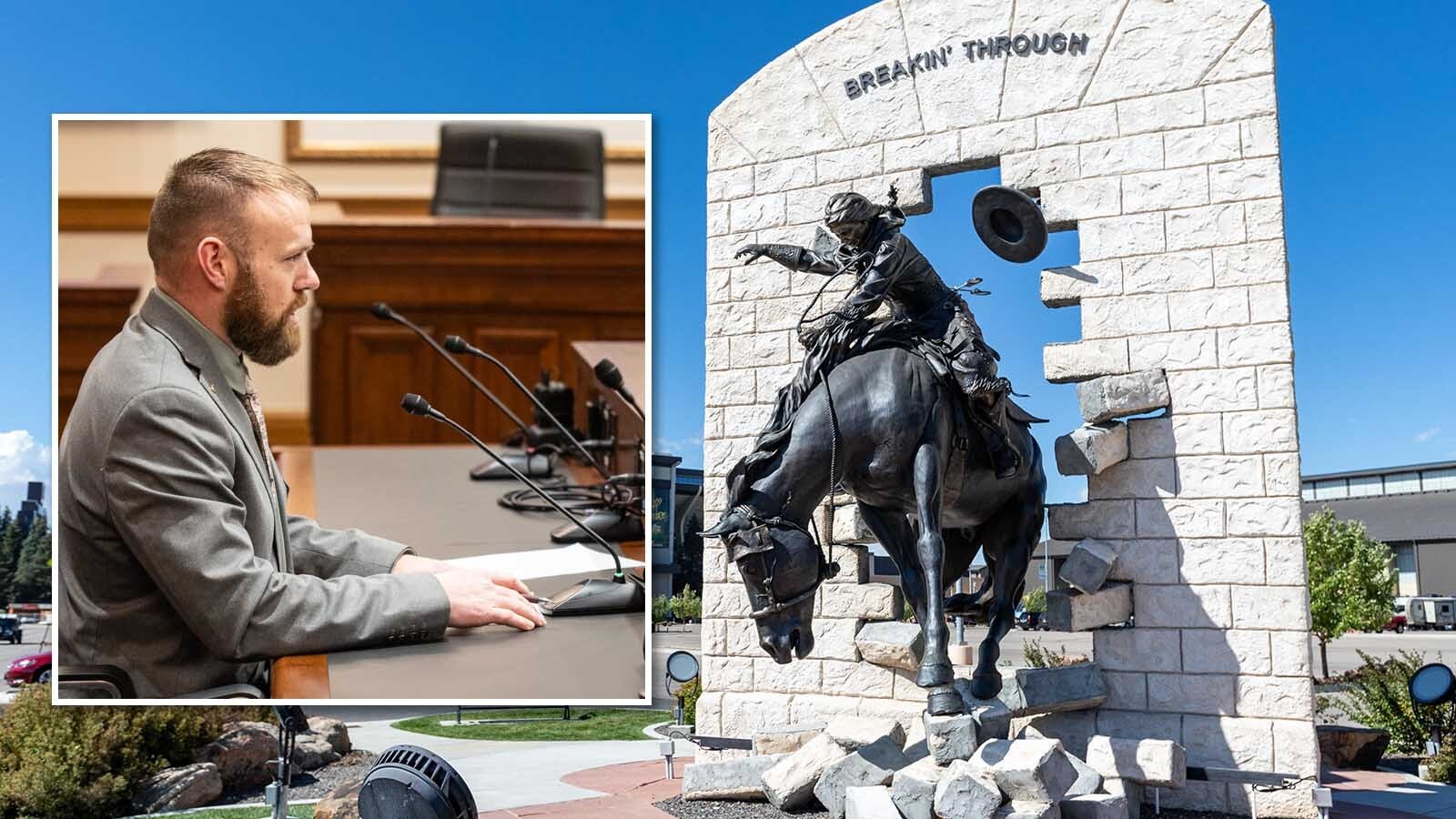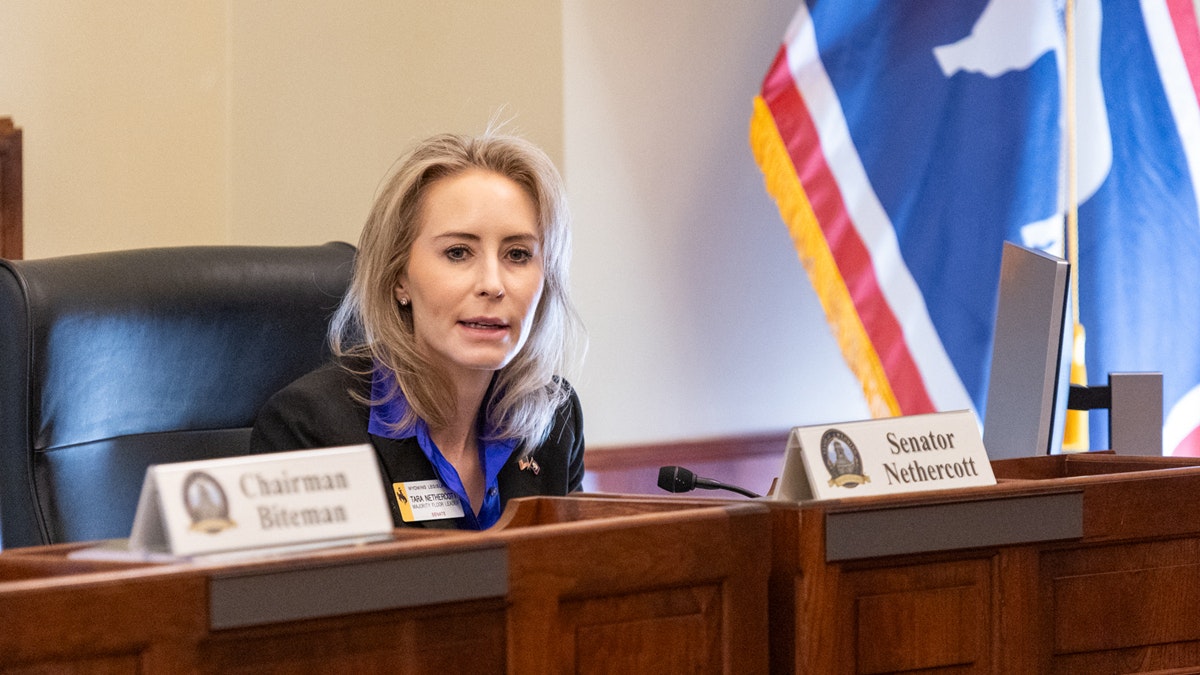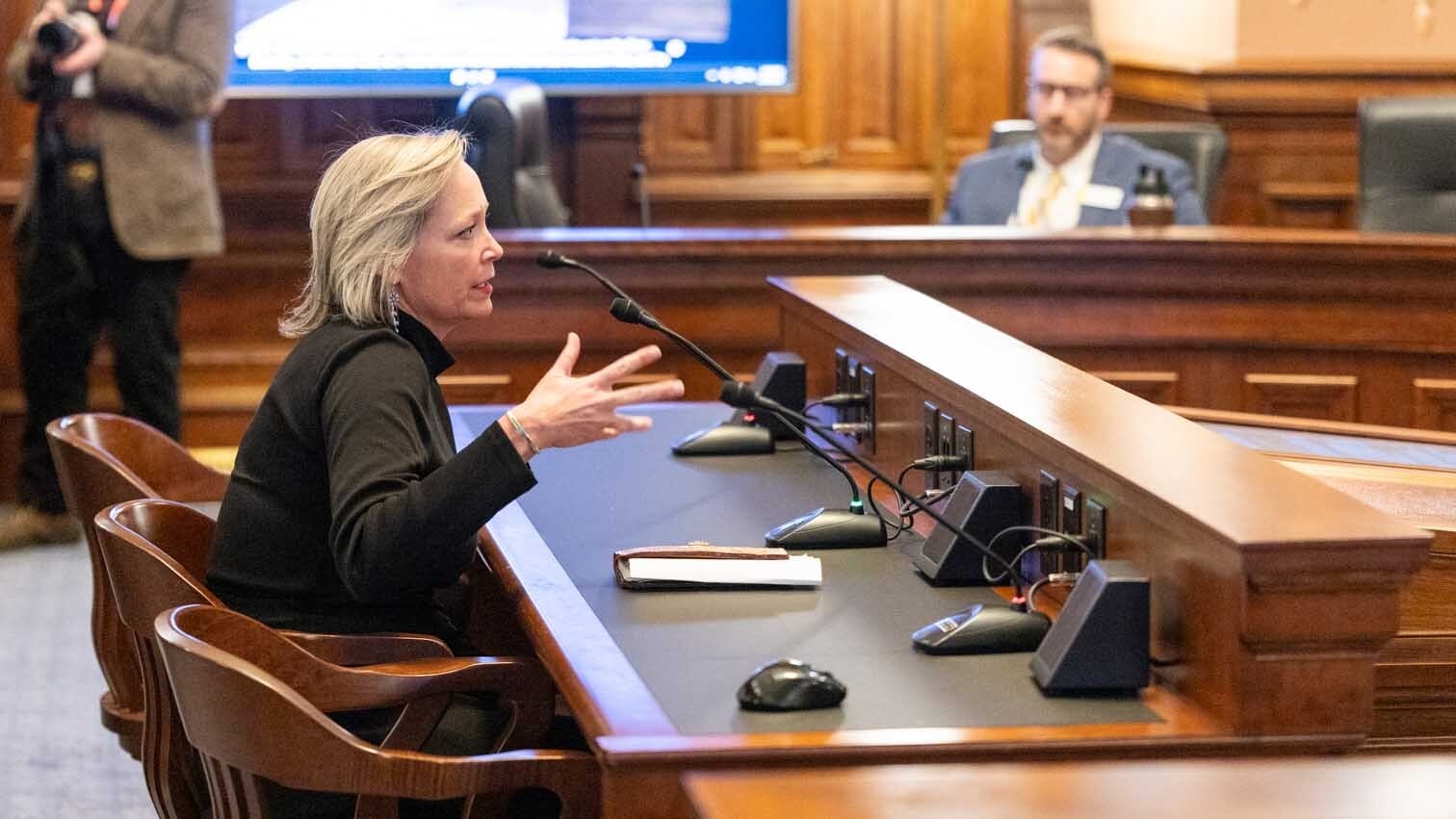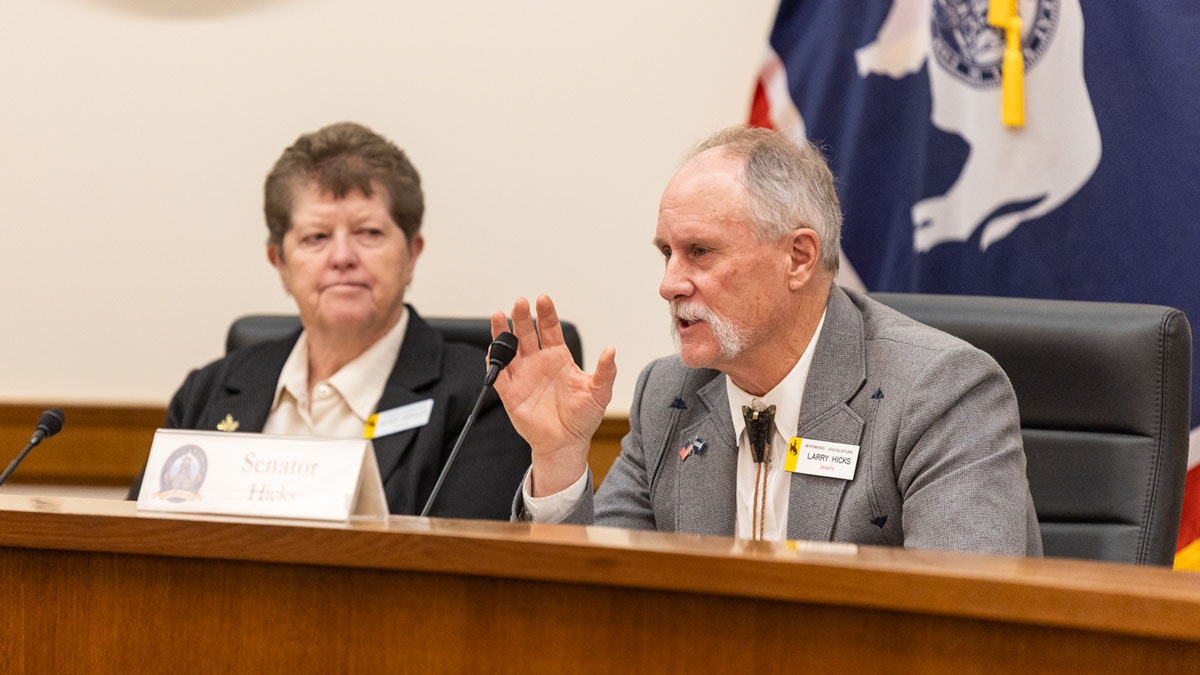A legislative committee has advanced legislation that would give more leverage to Wyoming landowners in negotiations with wind energy companies seeking to use their land.
The Agriculture, State and Public Lands & Water Resources Committee unanimously passed a bill Monday that would limit an electric company’s ability to use eminent domain to condemn land for energy projects and provide more clear compensation standards for condemned property.
What It Does
The Wyoming Eminent Domain Act addresses the ability of private entities to use eminent domain to condemn the property of other landowners to advance their energy projects.
Current law was originally written with traditional power utility companies in mind and gives private entities the right to use eminent domain proceedings to condemn land for projects such as wind energy collector systems and transmission lines. These collector systems are typically limited to in-state wind energy use.
The law originally started as a way for early Wyoming settlers to get access to water, but has expanded into a tool that can be used by power companies in the state.
Before issuing condemnation, a private entity must attempt to negotiate with a landowner. The proposed legislation would restrict a private wind farm’s ability to enforce eminent domain to use a property it desires.
Under current law, to obtain eminent domain, property acquired must be put to a public use. A power company only needs to show a “reasonable necessity” for its project and an entire community does not need to benefit from it.
The proposed legislation increases the threshold for companies, requiring commercial entities generating electricity to prove they are pursuing a “legally and logistically viable project” when they attempt to condemn land.
The legislation would not apply to wind producers that are already exporting power out of the state or are planning to do so with transmission lines.
This spring, Gov. Mark Gordon vetoed a somewhat similar version of the newly proposed bill that would have prohibited wind farms owned by independent power producers from using eminent domain to build transmission lines through private property to connect to the power grid.
That bill would have reimposed a previously existing moratorium that existed until 2015.
Pushback
Renewable energy advocacy group American Clean Power Association opposes the new legislation.
Jeff Pope, an attorney representing the group, described the legislation as “a solution in search of a problem.” He said no renewables company has ever condemned or threatened to condemn property in Wyoming and that these companies would be extremely hesitant to use eminent domain.
Brett Moline, director of public and governmental affairs of the Wyoming Farm Bureau, disputed Pope’s testimony to the committee, saying he had a member around five years ago who had land declared as eminent domain by a wind power company.
The legislation also states that only a public utility granted a certificate of public convenience can declare condemnation without entering the land use agreements required in the bill.
Pope said this is critical as only private entities tend to do initial development on wind projects. These smaller companies often then sell to a larger public utility like Rocky Mountain Power (RMP).
Pope said the legislation could cause additional rate increases in the future because public entities like RMP would then be tasked with taking on additional costs associated with the development projects.
Not ‘Very Republican’
Then, speaking as a Wyoming resident, Pope said the legislation “doesn’t seem very Republican,” calling it a regulatory attempt to remove renewable energy from Wyoming instead of letting the free market dictate success.
This caught the attention of Rock Springs Republican Sen. John Kolb, a committee member, who asked Pope if the government subsidizing many activities in the renewable energy industry is also an example of unwarranted market intervention. The Biden administration’s 2022 Inflation Reduction Act pumps in nearly $11 billion to build electrification infrastructure in rural America with green energy sources. Some of the tax credits provided, Pope said, are worth more than the actual projects.
“Without government subsidies, they wouldn’t exist,” Kolb said. “You wouldn’t have a lot of these green energy projects. I would fathom to say you wouldn’t have any of them without a government subsidy.”
Pope agreed, but countered that “two wrongs don’t make a right” and the state of Wyoming should not step in to restrict business because of a decision made by the federal government. He said this is an issue that should be tackled by Wyoming’s congressional delegation.
Questions Of New Development
As originally written, the bill also prohibits a commercial electric generation facility from using an existing easement to install additional collector systems.
Pope said that language is “incredibly problematic” because it could take away preexisting rights for a company to build anything on already established easements. He said this would open the state to hundreds of millions of dollars, or even billions, in damage claims.
Many wind and solar energy projects come with enormous up-front capital costs. Pope mentioned a new solar project outside Casper that will cost $1.2 billion to set up with a valuation of more than $2 billion. If the legislation were to pass, the project’s valuation could reduce to almost nothing, he said.
“I don’t throw those numbers out to scare anybody, that is the realistic valuation of these projects,” Pope said.
State Sen. Tim French, R-Powell, questioned why a power company couldn’t negotiate a new easement if it wanted to expand. Pope said it could, but it could also restrict development on easements where collector systems have not yet been built.
“I get that may not be what y’all are trying to do, but it is the language of the bill that may allow someone who wanted that result to argue for it,” he said.
Protect Landowners
Rep. Barry Crago, R-Buffalo, co-chair of the Ag Committee, agreed with Pope and expressed concern that the bill’s language could infringe on property rights guaranteed in the Wyoming Constitution.
Kolb said he wants to protect landowners who could be abused by a power owner wanting to use their land in a way that was not intended under the original easement.
Rep. Allen Slagle, R-Newcastle, said many older easements in Wyoming were crafted with minimal information included, which has allowed oil companies in northeast Wyoming to take advantage of vaguely written documents without properly compensating landowners.
Pope countered that these landowners are already protected by the court system.
Cheyenne attorney Karen Budd-Falen said it’s not so simple.
She shared the story of a recent Black Hills Energy transmission line dispute where landowners were sent a warning of condemnation after a compensation agreement had already been arranged. The new compensation total was half of what had been previously agreed to.
If damage is done to a landowner’s property, such as a fire caused by a transmission line that wasn’t properly maintained by a company, Budd-Falen said the resident almost always still has to hire legal representation.
“There’s not all that many of your ranchers that you represent that can afford that,” she told the committee.
Ag Committee Co-Chair Sen. Cheri Steinmetz, R-Lingle, successfully passed an amendment clarifying that existing uses would be allowed and that it would also solve the issue of old easements being abused.
Balance
Pope said wind projects serve as a tangible revenue source for the landowners that let power companies use their land.
Jim Magagna, a representative of the Wyoming Stock Growers Association, said the bill isn’t an attempt at hindering the wind energy industry; rather, it provides all involved parties equal representation and benefits in a land-use agreement.
Under the legislation, to have eminent domain granted, a utility company must negotiate and finalize land use and compensation agreements with at least 85% of the owners of the land upon which the collector system will be constructed if there are more than two landowners involved, which would give them the right to use at least 85% of the land. This requirement does not exist under current law.
Several members of the committee spoke in favor of the 85% threshold, saying it gives some bargaining power for landowners to negotiate with power companies on eminent domain issues.
Current law states that any land taken under eminent domain must be compensated for at a fair market value. The proposed legislation clarifies this further and says landowners must be compensated at a level that is equitable to what their neighbors have received for condemned land.
Rep. Bob Davis, R-Baggs, proposed the idea of assessing the value of property based on the value of the land where some of the energy is sent to in California.
“It’s based on the end-product, not the beginning or the taking,” Davis said.
The committee considered and unanimously passed another bill that would remove the ability of entities that are not considered public utilities to use the right of condemnation for their electric projects. This bill is much more similar to the legislation Gordon vetoed this spring.
The bill would in some ways be contradictory to the other piece of legislation that was passed, but a few members of the committee said it would be important to have a few different options for lawmakers when they meet for their next session in 2024.
Leo Wolfson can be reached at leo@cowboystatedaily.com.

